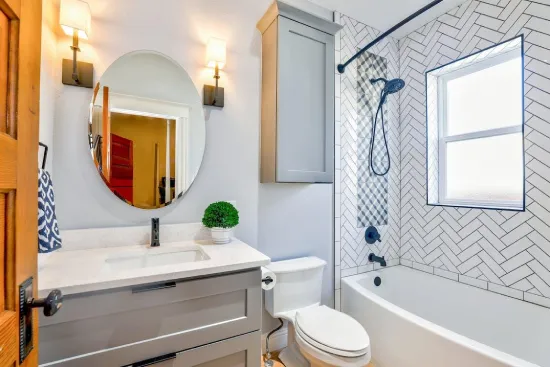What Is An Apartment Appraisal?
An apartment appraisal is the professional assessment of an apartment to identify its current fair market value. It’s conducted by an appraiser that evaluates the apartment on several factors and uses comps to come up with an accurate value of the apartment. These factors include (but are not limited to) the location of the apartment, its age, condition, the views it offers, any recent renovations, its size, layout, etc.
They also take building-specific factors into account, like the building’s management and the amenities it offers. Appraisers also consider any ongoing or upcoming assessments that may increase the monthly maintenance fees for the residents of the building. Even as the current owner of the apartment, you may have limited control over the appraisal process, especially when it comes to factors outside the scope of your apartment. Still, there is a lot you can do to receive a favorable appraisal.
It’s important to understand that while both appraisal and the fair market value (FMV) of an apartment are numbers that aim to gauge the financial value of the apartment, they are not the same. An appraisal is an objective assessment performed by a professional appraiser that evaluates the property on its merits.
In contrast, the fair market value is what a buyer is willing to pay for an apartment. If the buyer likes the property for factors beyond its fundamental merits or believes that its value will appreciate rapidly in the future, it may be willing to pay the price above its appraised value, pushing its fair market value higher.
When Does An Appraisal Happen, and Who Pays For It?
The only mandatory appraisal in the apartment selling process is the one buyer’s mortgage lender will ask for. The lender (bank) has to ensure that the apartment they are financing is being sold for a price that reflects its true worth. This appraisal is necessary to get a mortgage and is typically arranged and paid for by the prospective buyers. However, in some cases, a seller may agree to take on this cost (usually in a buyer’s market).
But there can be other apartment appraisals as well. As a seller, you may pay for an appraisal to help you come up with a relatively accurate asking price. An all-cash buyer may arrange for an appraisal before finalizing the deal.
From a lender’s perspective, appraisals may be good for three to six months, but extreme circumstances like a housing market crash or major interest rate swings may change that.
Why Is An Appraisal Important For Sellers?
An appraisal is quite important for sellers since it can have a significant impact on the sale of the apartment.
You can get three different scenarios with an appraisal. A common scenario is that the appraisal is quite close to your asking price. That’s ideal for you as a seller because it doesn’t give the buyer a lot of room to negotiate, and it satisfies the lenders so the sale can proceed relatively smoothly.
A relatively rare scenario is when the appraisal is higher than the asking price. If the difference is relatively minimal, it might give the seller more incentive to go through with the sale as soon as possible, fearing that you might raise the asking price.
If the appraisal is significantly higher than the asking price, you have to make a choice. You can ask for a higher price from the existing potential buyer, or you can back out of the deal (if a contingency is not preventing you from doing so) and re-enter the market with a new asking price.
In contrast, if the appraisal comes out lower than your asking price, the deal might be in jeopardy, especially if the buyer needs financing to buy your apartment. The lender may not offer sufficient funds to the buyer to make the purchase. As a seller, your best option to keep the deal on the table is to lower your asking price to a level that makes it affordable for the buyer (through financing).
You can also meet the buyer mid-way and lower your cost to a reasonable level, and they make up the difference through a larger down payment. A low appraisal may even give the seller a chance to back out of the deal with their deposit if there is an appraisal clause in the offer.
Appraisal Contingency Clause
The appraisal contingency protects a seller in case of a low appraisal. The rationale behind this contingency is that without financing, they wouldn’t be able to afford the apartment, and if the appraisal is significantly lower than the asking price, the bank will not lend them sufficient funds.
How To Ensure A Fair Appraisal and Challenge an Appraisal
As a seller, it’s in your best interest to get a good appraisal. If you don’t, another recourse you may have is to challenge an appraisal. There are a few things you, as the apartment owner, can do to positively influence your appraisal:
- Identify what appraisers look forwhen coming up with an accurate value. You cannot influence factors like location and square footage but small renovations, good presentation, and a modern kitchen may slightly move the needle in your favor.
- Prepare your own list of comps and provide them to the appraisers. The more detailed these comps are, the better. More and higher quality data pointsthan what the appraisers themselves might be able to collect can significantly influence your appraisal. The idea is that appraisers may do the bare minimum or may not have access to comps that you might have, and if you can provide them with as much information as possible, they can perform a more accurate appraisal.
- Tell them the differentiating factors and the strengths of your apartment(or the apartment building) instead of waiting for them to discover these strengths (they might not). They may seem more compelling in a documented form.
If the appraisal is still far lower than what you are asking for your apartment, you can challenge the appraisal. Weak and inaccurate comps/data points or missed factors/information can endorse this challenge. You may coordinate with the potential buyer in challenging the appraisal since they would have hired the appraiser.










